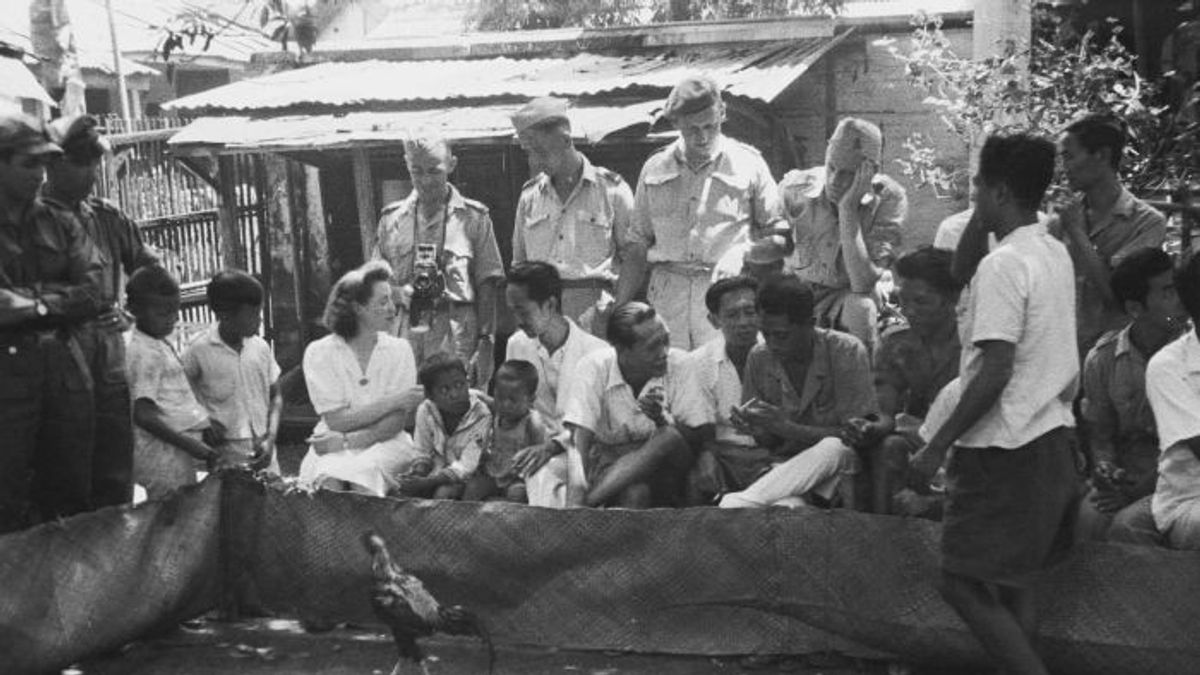JAKARTA - The tax authority in developing the colony has a big contribution. The Dutch trading airline VOC also felt the benefits. The whole city of Batavia was built from taxes. From building Kasteel to office facilities.
All of this was realized because the VOC tactics to make the Chinese and the natives as taxpayers. The taxes taken vary. In fact, from the smallest things. Cockfighting, for example. The cockfighting tax then became an important instrument to build a colony.
Perhaps the VOC made a big profit from monopolizing the spice trade in the archipelago. The land of the windmills was also splashed with blessings. Development can be massive. Similarly, the wheels of the economy in the Netherlands are running well.
The conditions were much different from the conditions in the colony: Batavia. The soil of the tub colony does not splash its benefits. VOC shareholders seemed reluctant to build Batavia since early 1619.
VOC Governor General Jan Pieterszoon Coen, who served twice in 1619-1623 and 1627-1629, was confused. However, Coen did not remain silent. He scheming. the option of bringing the Chinese to Batavia was an option.

Coen also gave all the privileges to the Chinese. They get a lot of convenience. Access to work in particular. In the beginning, the tax provided was so affordable. The tax greatly helped Coen build Batavia. Kasteel Batavia and the stadhuis (town hall) were built on tax money.
The narrative of the ease of living in Batavia spread. The Chinese also flocked to Batavia to try their luck. Since then the leadership of the VOC after Coen began to impose other taxes. The taxes are many. Moreover, some of them are also collected from the bumiputras. The tax money collected also made Batavia beautify itself.
“This means they pay five times more than other residents in terms of financing Batavia. while for the construction of City Hall or stadhuis, they pay three times as much.”
“Governor General Brouwer stated in 1633 that in all respects the Chinese were superior to the Dutch themselves. In 1644, the Chinese contracted 17 of the 21 types of taxes levied, such as taxes on gambling, night markets, markets, export-import, and puppet shows,” wrote Alwi Shahab in the book When the Dutch Drunk Born Batavia (2013).
Cockfighting TaxIn tax matters, the VOC is the best. The owner of the famous powerhouse is the most shrewd in juggling all kinds of activities to collect taxes. Cockfighting tax, one of them. The VOC realized that gambling and cockfighting or cockfighting were two of the favorites of the residents of Batavia and its surroundings.
The first cockfighting activity was commonly done by the residents of Batavia. Because, cockfighting was one of the interesting entertainments of its time. People used to perpetuate this activity in the City of Batavia.
However, the owner of the power was disturbed. People's morals are considered damaged. Gambling, which is often coupled with cockfighting activities, is the estuary. Inevitably the VOC in the 1660s took a firm decision. They forbid cockfighting.
Gradually, the moral issue was actually overcome by the lust for profit. The VOC felt that cockfighting activities could increase the opinion of the City of Batavia. The prohibition was changed. Cockfighting may be held only outside the city walls that have been determined by the Company.

Cockfighting arenas are scattered everywhere. Asem Market (Pecenongan area), one of them. Every day the cockfight is held, the audience is often booming. From Dutch, Chinese, to Europeans. In the arena, people can see several buckets of water and dozens of chicken cages ready to fight.
That passion made cockfighting famous. Young and old are crazy about cockfighting activities. Gambling especially. This popularity is increasingly proof that cockfighting is widely known by the residents of Batavia. Moreover, the term Jago Betawi which is identified as a martial arts master is taken from the activity of cockfighting.
“The etymology of the word 'jag' is thought to have come from the Portuguese language, 'jak' which literally means game, referring to the game of cockfighting which first appeared in Banten in 1248. This cockfighting game was very popular with the Portuguese when Don Jorge de Menesses opened the Meness Bazaar years 1525-1526. The term "good" then developed into the title of champion or champion of cockfighting. This term appeared in Banten in 1810.”
“In general, champion, champion or champion is a nickname for someone who is an expert. This term developed until finally the title of champion, champion or champion turned into a term for people who are experts in martial arts (pencak silat). It is thought that these three terms were carried over to Betawi and other areas east of Banten, when Governor General Herman Willem Daendels founded JI. Raya Pos (Grote Postweg) from Anyer-Panarukan in 1890," concluded GJ Nawi in the book Maen Punch: Betawi's Typical Pencak Silat (2016).
The English, Chinese, Japanese, Arabic, and French versions are automatically generated by the AI. So there may still be inaccuracies in translating, please always see Indonesian as our main language. (system supported by DigitalSiber.id)








